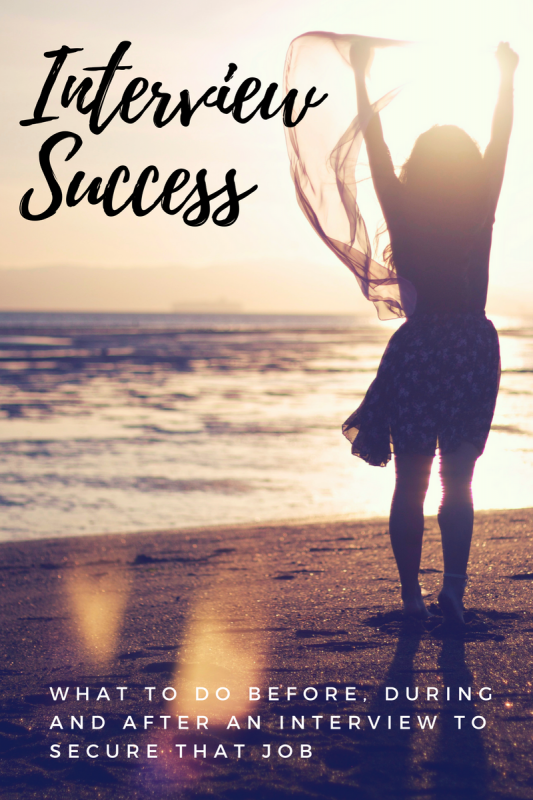
Interview Success
Tips on securing that job
- July 10, 2017
- Education News & Comment, Recruitment News & Comment,
- admin
Remember what an interview is for
Whilst the interview is for the interviewer to decide whether you are suitable for their organisation, it is also your opportunity to decide whether the organisation is suitable for you. Could you work for this person and could you work in this organisation?
Remember to be yourself
The most important tip is to be yourself and to be honest. The interviewer wants to see you at your best and being something you’re not will reflect badly on you at interview or once in post.
Before the interview
Preparation is key and demonstrating that you have prepared well is a powerful way to improve your chances of getting the job.
- Study the job advertisement and paperwork
Companies often remove vacancy information after the deadline, print it out so you remain focussed on exactly what they’re looking for. - Know you CV and application letter and be prepared to answer questions about them
Interviewers will be interested to know about achievements and experiences that will help you with this role and benefit their company. - Prepare any activities they have asked for
Some interviews will require you to prepare activities to bring with you. Give these the time they deserve, remembering that this is another opportunity for you to prove yourself. - Consider what any interview activities might be
If your interviewer has explained that a ‘relevant activity’ is part of the interview, look through the job description, think about what this activity might be and practice it before-hand. - Prepare a portfolio
If it is possible, and relevant, preparing a portfolio of your work speaks volumes about your preparation. Also take relevant accreditations and certificates, especially if they are mentioned in the person specification - Research the organisation
Knowing more than where the offices are, will help you to feel more confident in the interview and impress the interviewer. Look at their website and understand their mission and vision, research their social media and competitors and try to identify how your skills can support them. If the organisation is a school, look at their inspection report and the local press to gather a fuller picture of their strengths. Again, try to identify how employing you will benefit them. - Check your journey time
Don’t forget to plan your journey, rehearsing it will give you one less thing to worry about on interview day. - Rehearse typical interview questions
The more typical questions you rehearse, the more confident you will be and the easier it will be for you to demonstrate how you fit what they are looking for.Follow the STAR (situation, task, action, result) structure to focus your answers and illustrate your achievements and how they can contribute to the role and to the company.
Questions can cover.
– facing a challenge
– persuading people
– being out of your depth
– taking risks
– working under pressure
– prioritising workload
– communicating good results
– improving processes or coming up with new ideas
– your greatest achievement
– your goals
– your strengths and weaknesses‘Tell me about yourself’ is a big question that interviewers often ask as an opener. Identify key relevant points that the interviewer will be interested in and will demonstrate your suitability to the role.
Whether or not you would accept the job is another common question, usually asked at the end of the interview.
- Plan your outfit
What you wear will depend on the role but you need to be well-presented, smart and importantly, comfortable. - Think of your own questions
Usually at the end of the interview, the interviewer will ask you if you have any questions. Questions should cover the role itself or career development and it is ok to ask them during the interview. Example questions.
– How your performance will be appraised
– If there is anything they would improve in their department
– What development plans the organisation has
– A typical career path of the job
– Provided training and development
– The proposed start date
– When and how they will let you know their decision
Interview day
If you have prepared well, this should be a breeze. Remember this is your only opportunity to prove yourself for the role, if the interviewer doesn’t give you this opportunity, take it yourself and explain your suitability.
- Arrive early but not too early, five minutes is plenty. Arriving too early can be awkward especially if there are several interviewees, so find a local café or park to sit in if you are more than five mins early.
- Turn your phone off well before the interview.
- Be relaxed and polite, talk slowly and carefully and ask if you have answered the questions to their satisfaction.
- Expect more than one person to interview you.
- Try to remember the names of your interviewers and use them.
- Talk as though you already work there.
After the interview
Usually the successful candidate will be contacted first, either through the agency or directly, giving the interviewer the opportunity to offer it to their second choice if the first choice turns it down.
If they are telephoning their answer, be available for the call. If you are successful, thank them and ask what happens next. If you are unsuccessful, be polite and take their decision as final. Thank them for giving you the opportunity to attend the interview and use their feedback constructively to improve your next interview.
About finding a job through ESP
ESP works with its candidates to ensure they are as prepared as possible for each interview they attend. If you are considering a new role, contact us today to discuss your goals. Send us your CV via the CV drop off button or telephone 0845 686 0690 for an informal chat.
